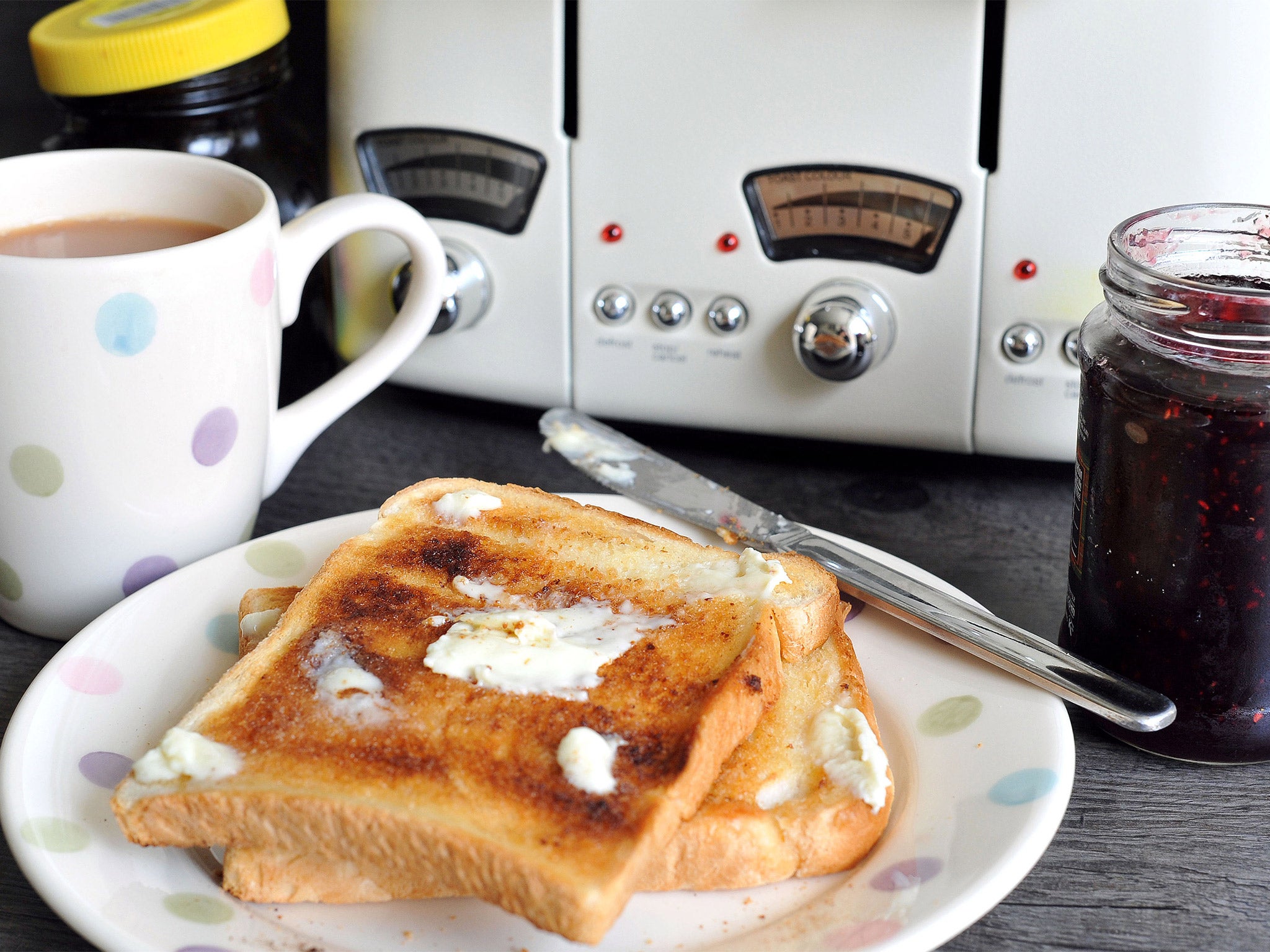Britons drinking less tea and eating more junk food, new data says
Weekly consumption of chips, pizza, crisps and ready meals has soared

The traditional cuppa is in decline, the slice of toast is on the way out, but junk food is still increasing in popularity.
The changing eating and drinking habits of UK consumers through the generations have been revealed by data which shows that old favourites are losing popularity.
Moves towards healthier diets can be seen in recent decades, with shifts towards more low-calorie soft drinks, skimmed milk and fresh fruit. Yet weekly consumption of chips, pizza, crisps and ready meals has soared.
The details are revealed in new figures from the National Food Survey, which has been running since the Second World War, published by the Environment Department (Defra) as part of its “open data” scheme.
The new data from 150,000 households who took part in the National Food Survey between 1974 and 2000, combined with information from 2000 to 2014 which is already available, shows a dramatic shift from white to brown, wholemeal and other bread.
But Britons have also reduced the amount of bread they eat by 40 per cent since 1974. Based on a 40g slice from a medium loaf, the amount people are eating has fallen from 25 to 15 slices a week, the figures suggest.
Traditional spreads such as butter, margarine and dripping have all fallen in popularity since 1974.
The Great British “cuppa” has also declined since the 1970s, with tea consumption falling from 68g per person per week to just 25g.
With a teabag or portion of loose tea weighing around 3g, that means Britons are drinking on average just eight cups of tea a week today, down from 23 in 1974.
Another great British staple, fish and chips, appears to be in decline. While the amount of chips we eat has gone up significantly, consumption of white fish and takeaway fish both more than halved between 1974 and 2014.
People are eating around the same amount of fresh vegetables as they were 40 years ago, but we have gone off our greens, with consumption of courgettes, mushrooms, aubergines, and packs of stir fry veg all increasing instead.
Changing technology, with an increase in freezers and microwaves, has also led to shifts in what we are eating. Consumption of ready meals and convenience meats have increased six-fold.
Britons are spending a smaller proportion of pay, 11 per cent, on food today than in 1974, when almost a quarter (24 per cent) was spent.
Environment Secretary Liz Truss said: “Food is the heart and soul of our society and this data not only shows what we were eating 40 years ago, but how a change in culture has led to a food revolution.”
Join our commenting forum
Join thought-provoking conversations, follow other Independent readers and see their replies
Comments
Bookmark popover
Removed from bookmarks